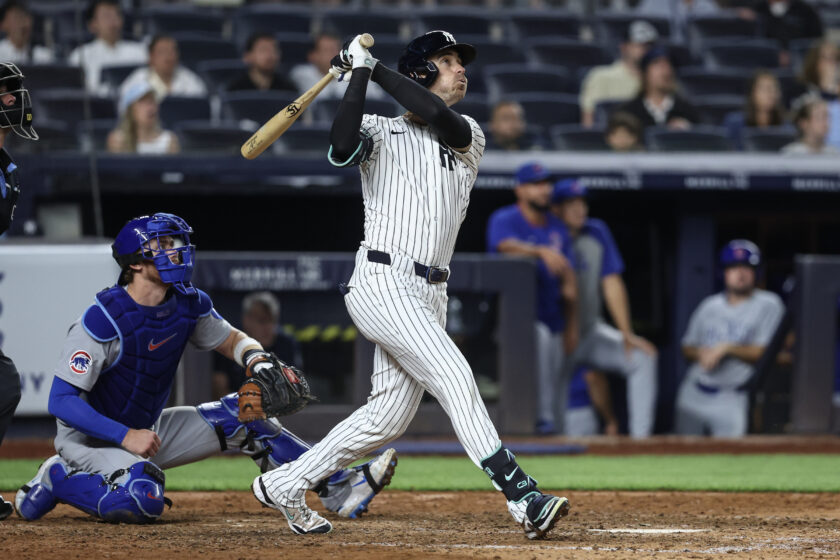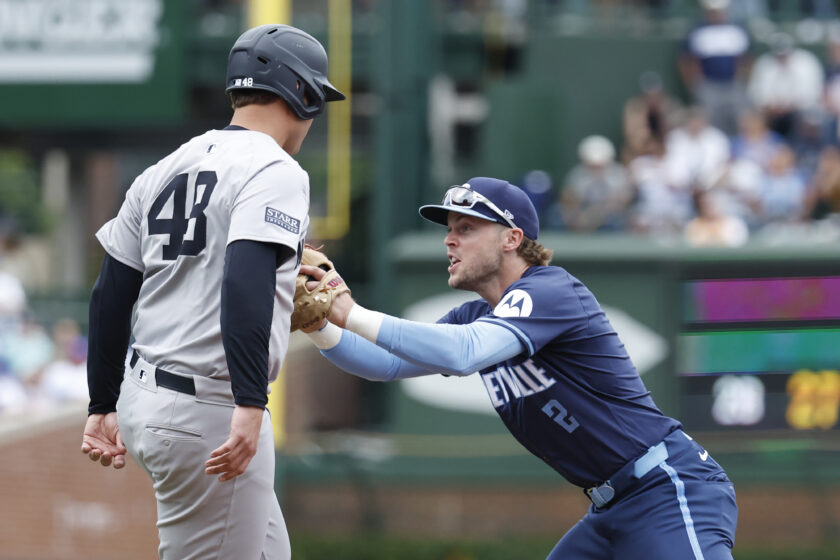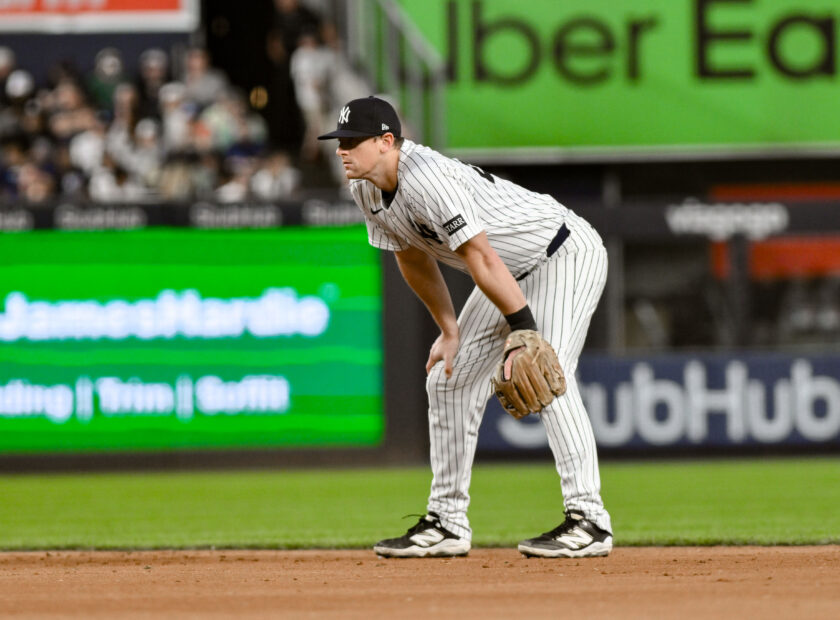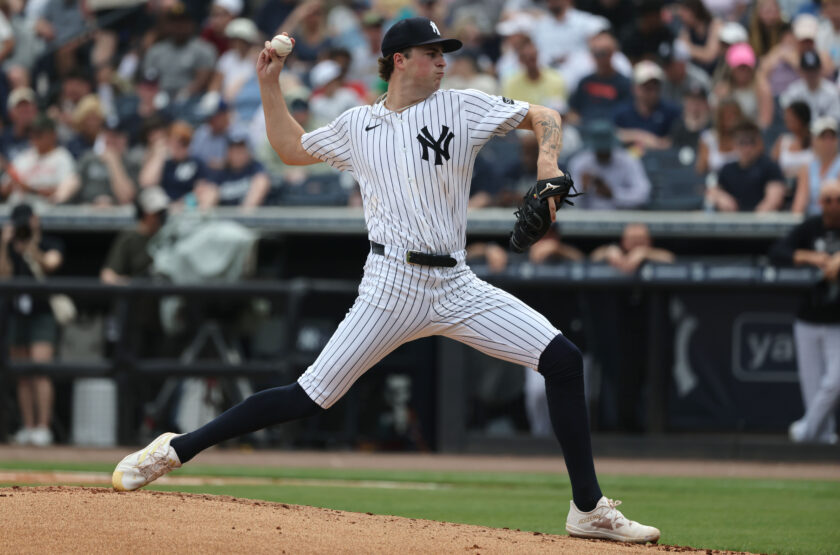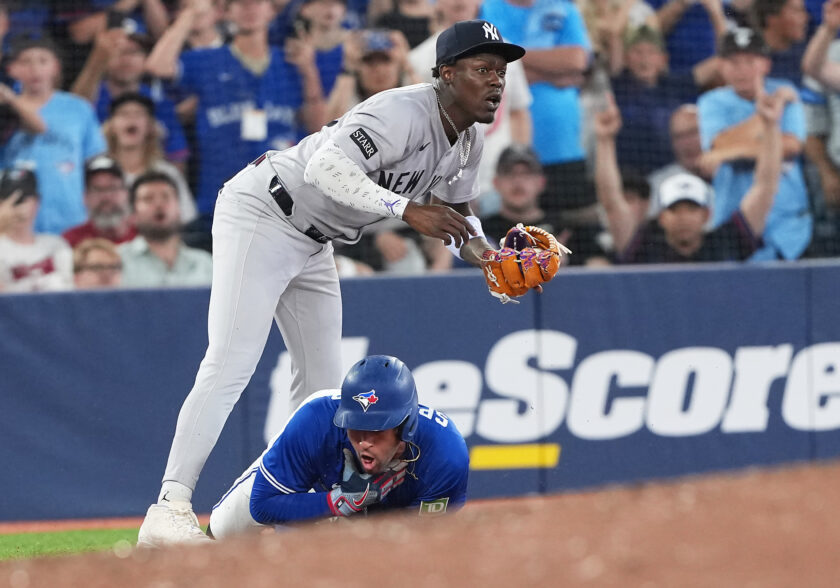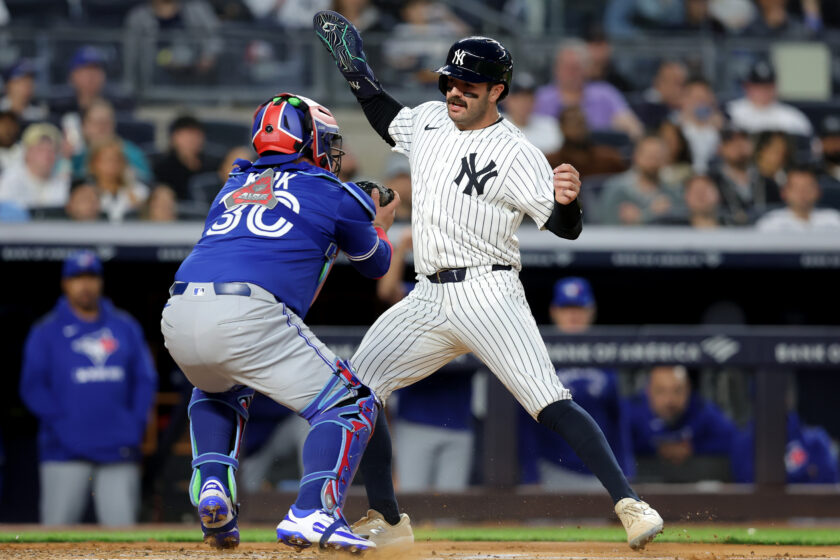New York Yankees youngster Miguel Andujar should DH in the postseason
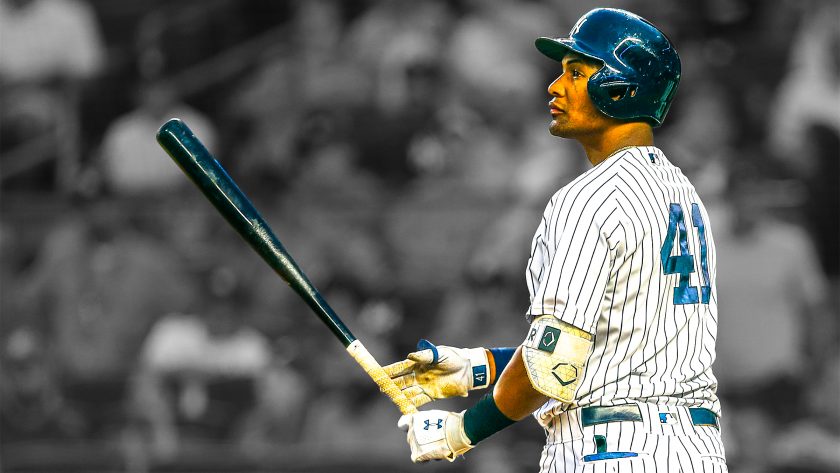
Playing Miguel Andujar at DH would give the New York Yankees a better defensive setup and a stronger lineup.
Miguel Andujar has been a monster at the plate for the New York Yankees this year. However, his defensive showing at third base has been a real issue. This hasn’t been a secret.
Moving him to DH would put the Yankees in the best position to win in the playoffs.
Offensive Star, Defensive Liability
A glaring example of how Andujar’s defense can negatively impact the Yankees’ ability to win important games came in the early August series against the Boston Red Sox. The Yankees were an out away from salvaging the last game of the series, but a low throw by Andujar tied the game.
The Red Sox eventually won it in the tenth inning, completing a demoralizing sweep of New York and effectively ending the pennant race.
Andujar is among the MLB leaders in errors at his position, and when you dive into the advanced defensive statistics, the situation gets even grimmer. FanGraphs has his defensive runs saved (DRS) at -23.
The next worst is Phillies third baseman Maikel Franco, with -12. In fact, only one player at any position has a worse DRS than Andujar.
In the postseason, when bunting really comes into play, the Yankees need someone on the hot corner who can make the routine plays.
Another reason to start getting Andujar ready to DH in the Wild Card Game and beyond is Gary Sanchez. The Yankee backstop’s penchant for passed balls is well documented, and having him and Andujar on the field at the same time in October is flirting with disaster.
A Better Lineup
The only concern that arises from using Andujar as the DH is how the rest of the lineup will be impacted. If the Yankees are at full strength come playoff time, it all comes down to two players.
Neil Walker vs. Andrew McCutchen
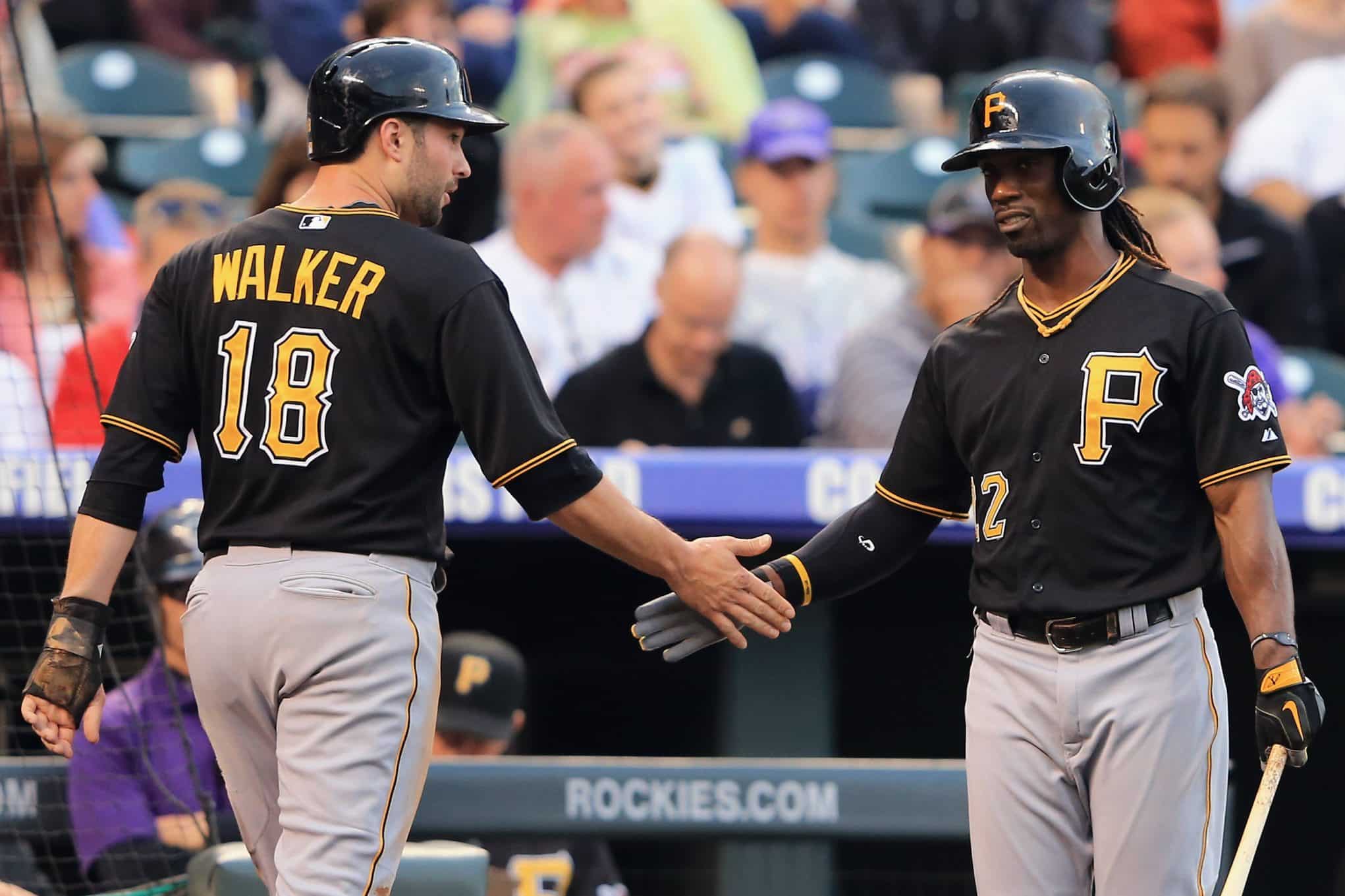
Plugging Andujar in at DH, of course, means that Neil Walker will man third base.
At first glance, that move appears to make the Yankees’ lineup weaker. It pushes Giancarlo Stanton into playing every game in the outfield, displacing newly acquired Andrew McCutchen (assuming Aaron Judge recovers in time for the playoffs).
The truth is that Walker and McCutchen are basically interchangeable in terms of offensive output. If anything, Walker has a slight edge over McCutchen.
Interchangeable Offensive Parts
That statement seems insane on the surface. McCutchen is a former MVP and a five-time All-Star; Walker hasn’t made an all-star team since he was in the minor leagues.
It’s not all about resumes, though, and Walker’s terrible start makes a comparison of this season’s cumulative stats a meaningless pursuit. The key is to look at just the second half output for the two reunited teammates.
[sc name=”Yankees Center” ]After the All-Star break in mid-July, Walker and McCutchen have put up very similar:
- Walker — .278 AVG, 6 HR, 19 RBI, .834 OPS (108 at-bats)
- McCutchen — .238 AVG, 6 HR, 15 RBI, .794 OPS (130 at-bats)
It’s a small sample size, but Walker has definitely outperformed McCutchen in the second half of the season. The advanced stats tell a similar story.
Weighted runs created plus (wRC+) is a stat that gauges a player’s overall offensive performance by taking into account aspects such as park factor and how the rest of the league is hitting. Joshua Diemert at SB Nation pointed out that Walker’s 125 wRC+ in the second half is about 70 points higher than his first-half output.
Over the same period of time, McCutchen’s wRC+ is also trending up, from 112 in before the break to 122 following the All-Star Game. It’s not as drastic a shift as Walker’s, but the end result is essentially the same.
Recent History Trumps the Past
McCutchen’s productivity has significantly dropped off in the last few years. He was a really good hitter for a nice stretch, but even then he only hit 30+ home runs one time, and he’s never reached 100 RBI.
From 2015 to 2017 McCutchen averaged 25 home runs and a .275 batting average in 155 games per season. Walker’s averages for the same stats in the same three years are 17+, .272, and only 125 games.
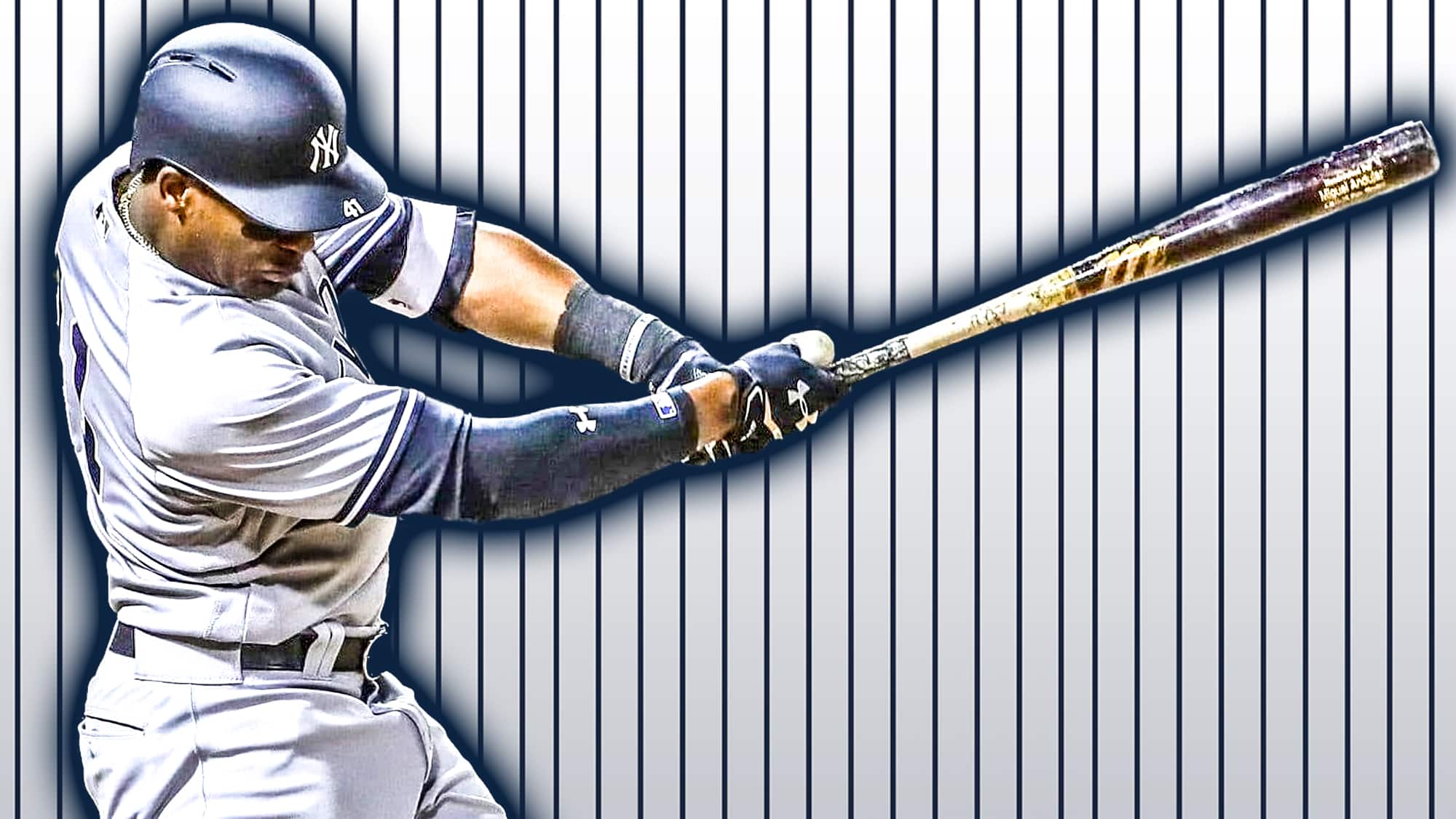
At this point in McCutchen’s career, he and Walker are basically the same. That’s especially true at Yankee Stadium where Walker can sneak the ball out batting lefty while the right-handed McCutchen is stuck hitting to the deepest part of the ballpark.
Switch-Hitting Flexibility
Walker’s ability to switch hit is what really sets the two apart. It gives Aaron Boone more flexibility with his lineup, especially if Greg Bird’s struggles result in Luke Voit starting at first base.
With Andujar at third base and Voit at first, the only left-handed batters in the lineup are Aaron Hicks and Didi Gregorius. If Boone wanted to throw in another, he’d have to replace McCutchen with Brett Gardner, a definite downgrade.
Boone should at least DH Andujar for the Wild Card Game. If the Yankees have a lead in one of the following series, and McCutchen is swinging a hotter bat than Walker, that’s the time to take the defensive risk.
Whatever difference there is between Walker and McCutchen, it is nowhere near enough to warrant passing on the defensive upgrade that comes from moving Miguel Andujar to DH.
[sc name=”Yankees Link Next” link=”https://elitesportsny.com/2018/09/01/new-york-yankees-clean-shaven-andrew-mccutchen-ready-to-go/” text=”A Clean-Shaven Andrew McCutchen Is Ready To Go” ] [sc name=”Yankees Footer” ]Freelance editor and writer, and full-time Yankees fan. Originally from Monticello, NY, but now lives in Kaohsiung, Taiwan.

